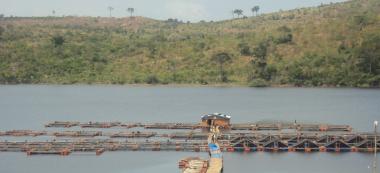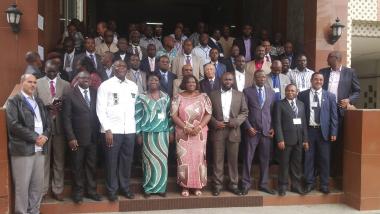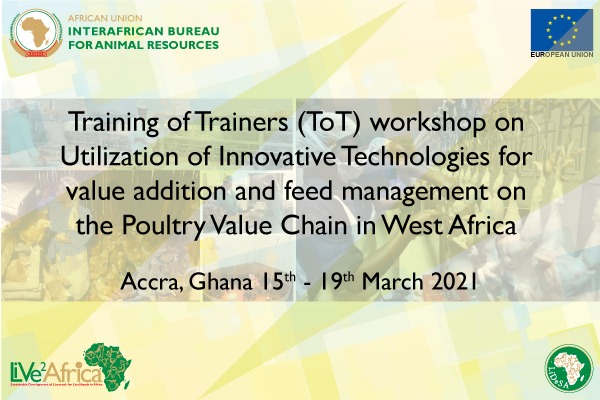
A training of trainers’ workshop for the poultry value chain takes place from 15th to 19th march 2021 in Ghana. With the support of AU-IBAR, the workshop’s objective is to identify practical innovative technologies on the poultry value chain and facilitate their adoption by stakeholders in Ghana. Specifically, it is hoped to expose participants to current appropriate, simple, cost-effective, and gender-sensitive technologies and innovations and equip them to apply them in poultry feeding and along the poultry value chain.
Technological innovations available in Africa’s animal resources sector include improved animal feed; genetic improvement of species to increasing performance and various animal health packages. Feed additives have been introduced in poultry diets to promote growth and reproductive performance.
The objective of the workshop aligns well with the Ghana’s livestock development policy and strategy 2016-2025 (MOFA, 2016) and with other west afrcican’s countries strategies. It will providez the foundational knowledge to support smart poultry production. In line with the FAO Global Plan of Action (GPA) on Animal Genetic Resources (AnGR) (FAO-2007), the workshop expects to contribute to building institutional and human capacity of the poultry industry for helping sustain the poultry value chain in Ghana. Additionally, this training opportunity for local poultry farmers will also lead to improved incomes, livelihoods and food security in line with Africa Union’s Livestock Development Strategy (AUIBAR, 2015) as well as Sustainable Development Goals 1 (no poverty), 2 (zero hunger), 3 (good health), 5 (Gender Equity, Equality and Women Empowerment), 12 (sustainable production and consumption), 13 (climate action) and 17 (partnerships).
In Ghana, as in the majority of African countries, the increase in demand for meat and eggs has led to an increase in poultry production, one of the potential avenues for achieving sustainable production of high-quality protein and alleviating poverty. Commercial chicken keeping depends mostly on imported chicken strains. The Ghana local hatcheries can supply only 30% of Day-old chicks demand in the country. Its contribution to the total protein supply and per capita income has remained low on account of the low-resource smallholders.
They cannot shoulder the production demands of imported birds that have been developed in intensive systems.
Poultry production supports and sustains actors’ livelihoods along the value chain including traders, transporters, slaughter facilities/processors, feed manufacturers, government, local authorities, and veterinary medicine suppliers. Livestock are an asset for economic resilience and income and support crop production and non-agricultural employment with manure (fertilizer), ploughing, and transport.
About some technologies and innovations in the poultry value chain (reference to FAO Studies)
In recent times, technologies such as electric poultry incubator, automatic water drinkers, ventilation fans to cool chicken houses, automatic chick feeders, smart lighting for chicken houses, and protein-enriched feed are used in poultry production. Additionally, automated layer management, solar incubator, smart poultry houses, and precision agriculture to monitor feed intake and body weight all help to improve production efficiency. Co-operative incubation, biogas production, egg sexing, integrating the supply chain with digital technology, artificial insemination, installation of ammonia production sensors and smart cameras in chicken houses are all technologies worth introducing to poultry farmers.
In terms of breeding, local chickens are hardy and adapted to adverse climates making them ideal candidates for our tropical environment. Therefore crossbreeding them with appropriate genotypes will help develop superior lines for improved egg and meat production.
In terms of communication and marketing, WhatsApp platforms share information with farmers whilst mobile money transfers can help facilitate payment of products or bills. Additionally, an online data collection and transfer system (e.g. Open data kit-ODK) can support data collection from poultry farmers and their associations.

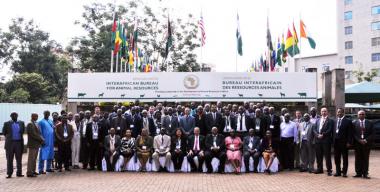
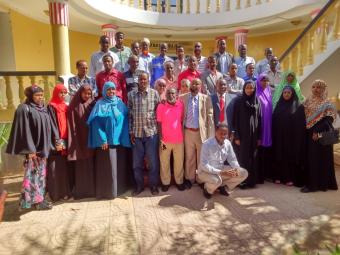
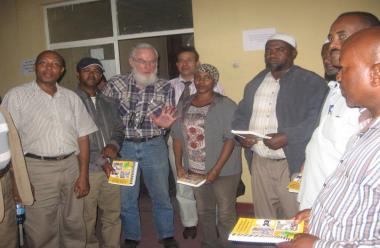
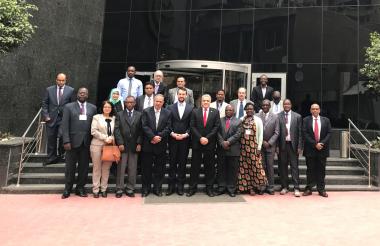
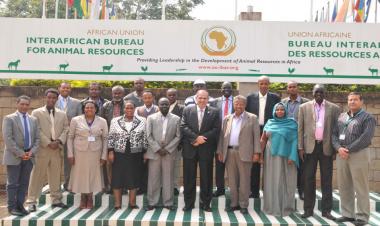
![[© 2014 AU-IBAR. Participants attending a training programme in Surveillance and Epidemiology of Trade-Related Transboundary Animal Diseases being Offered by the University of Nairobi, Faculty of Veterinary Medicine.] © 2014 AU-IBAR. Participants attending a training programme in Surveillance and Epidemiology of Trade-Related Transboundary Animal Diseases being Offered by the University of Nairobi, Faculty of Veterinary Medicine](/sites/default/files/styles/normal_size/public/2020-09/57.jpg?itok=k2u2EVX0)
